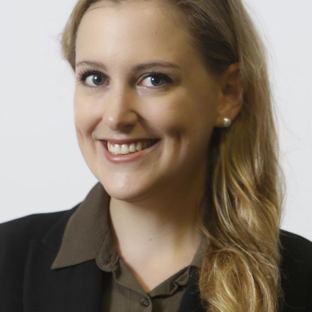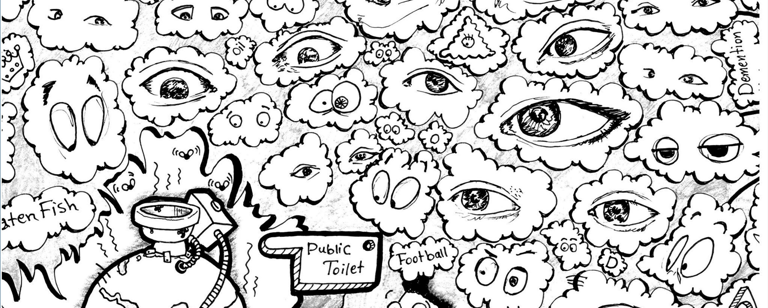What level of state secrecy are we willing to accept? And what happens when we don’t know – or don’t wish to know – what our government is doing in our name?
The capacity for the public to scrutinise government decisions is central to a functioning democracy. But since the introduction of Operation Sovereign Borders in 2013, we’ve seen increasing secrecy around the implementation of asylum seeker policy: on-water operations are confidential, offshore detention centres are difficult to access, and new rules under the Border Force Act mean people working in Australia’s detention system can now be jailed for disclosing ‘protected information’.
Does this culture of secrecy violate Australia’s democratic values? Or are our politicians upholding their elected responsibility by representing the national interest? As a nation, is our moral obligation to restore government transparency and accountability?
Ultimately, the question we need to ask ourselves is this: Can secrecy be justified in the name of national security? At this forum event, we’re bringing together three speakers to respond specifically to this provocation. Join host Gael Jennings, human rights lawyer Madeline Gleeson, philosopher Raimond Gaita and media ethics expert Denis Muller for a discussion of the dark corners of democracy.
Presented in partnership with Asylum Insight.
Featuring
Gael Jennings
Gael Jennings is an award-winning national TV and radio broadcaster with 25 years’ experience as presenter, reporter and TV executive.
She was the ABC’s first national science and medical reporter for TV News, and for the 7.30 Report, presenter of 7.30 Report, reporter of ABC TV’s Quantum and Catalyst, host of ABC radio 774’s mid-morning and afternoon programs, Insight presenter on SBS, and a development producer with ABC TV. She is an award-winning author of two non-fiction books and is a regular commentator on ABC TV News Breakfast and 774 ABC radio. Gael is an Honorary Fellow at the Centre for Advancing Journalism.

Raimond Gaita
Raimond Gaita has published widely to academic and non- academic audiences. In 2009, the University of Antwerp awarded Gaita the degree of Doctor Honoris Causa ‘for his exceptional contribution to contemporary moral philosophy and for his singular contribution to the role of the intellectual in today’s academic world’.
His books, which have been widely translated, include: Good and Evil: An Absolute Conception, the award-winning Romulus, My Father, which was nominated by the New Statesman as one of the best books of 1999 and was made into a prize winning film starring Eric Bana, Frank Potente and Kodi Smit-McPhee; A Common Humanity: Thinking About Love and Truth and Justice, which was nominated by the Economist as one of best books of 2000; The Philosopher’s Dog, shortlisted for the New South Wales Premier’s Award and the Age Book of the Year, Breach of Trust: Truth, Morality and Politics and, as editor and contributor, Gaza: Morality, Law and Politics; Muslims and Multiculturalism. His latest book is After Romulus.
Gaita is Professorial Fellow in the Melbourne Law School and the Faculty of Arts at the University of Melbourne and Emeritus Professor of Moral Philosophy at King’s College London.
Denis Muller
Denis Muller is a leading expert on media ethics and worked as a journalist for 27 years, including as assistant editor at the Sydney Morning Herald and associate editor at the Age.
Since 1995, he has conducted independent social and policy research across education, health, environment and media fields. Dr Muller teaches media ethics for the Master of Journalism at Melbourne University and is the author of Media Ethics and Disasters and Journalism Ethics for the Digital Age. Denis is an Honorary Fellow at the Centre for Advancing Journalism.

Madeline Gleeson
Madeline Gleeson is a lawyer and Research Associate at the Andrew and Renata Kaldor Centre for International Refugee Law. She holds a Master in International Law from the Graduate Institute of International and Development Studies in Geneva, Switzerland, which she completed after being awarded the prestigious John Monash scholarship in 2012. Madeline also holds a Bachelor in International Studies and Bachelor of Laws with First Class Honours from the University of New South Wales, and a Diploma of Political Studies from the Institut d’Etudes Politiques in Aix en Provence, France.
Madeline has extensive experience working with forcibly displaced people around the world. She has worked on statelessness, refugees, human trafficking, labour migration and land grabbing with the Jesuit Refugee Service in Cambodia, and with the United Nations High Commissioner for Refugees (UNHCR) and the International Catholic Migration Commission (ICMC) in Geneva. She also has human rights and refugee experience in South Africa and Indonesia.
Madeline previously practiced as a solicitor in Australia. Madeline specialises in international human rights and refugee law, with a focus on the law of state responsibility, extraterritorial human rights obligations, offshore processing on Nauru and Manus Island, and the protection of children. She is the Director of the State Responsibility and Borders,Offshore Processing, Protection of Children and Regional Cooperation and Protection projects at the Andrew & Renata Kaldor Centre for International Refugee Law.
